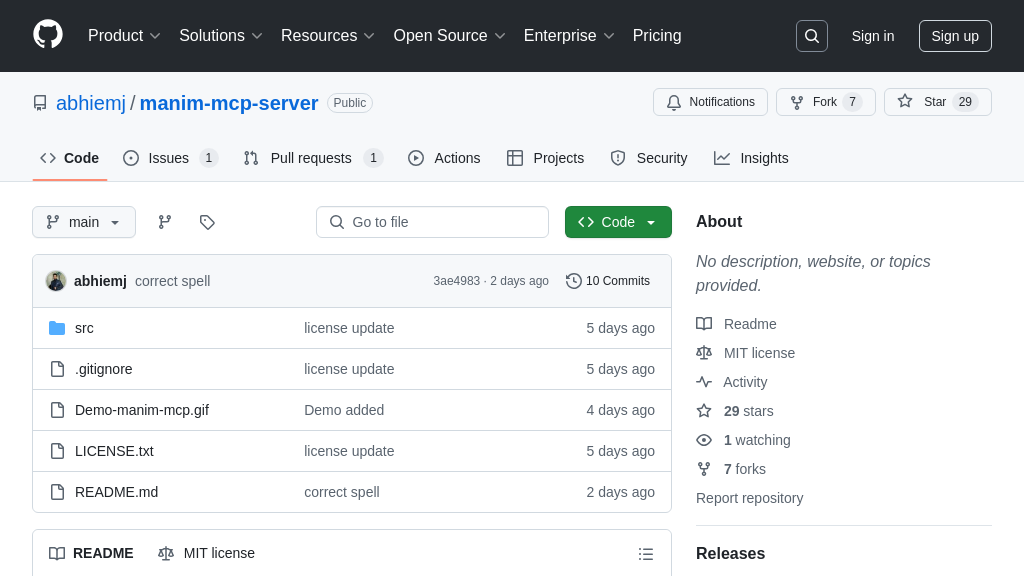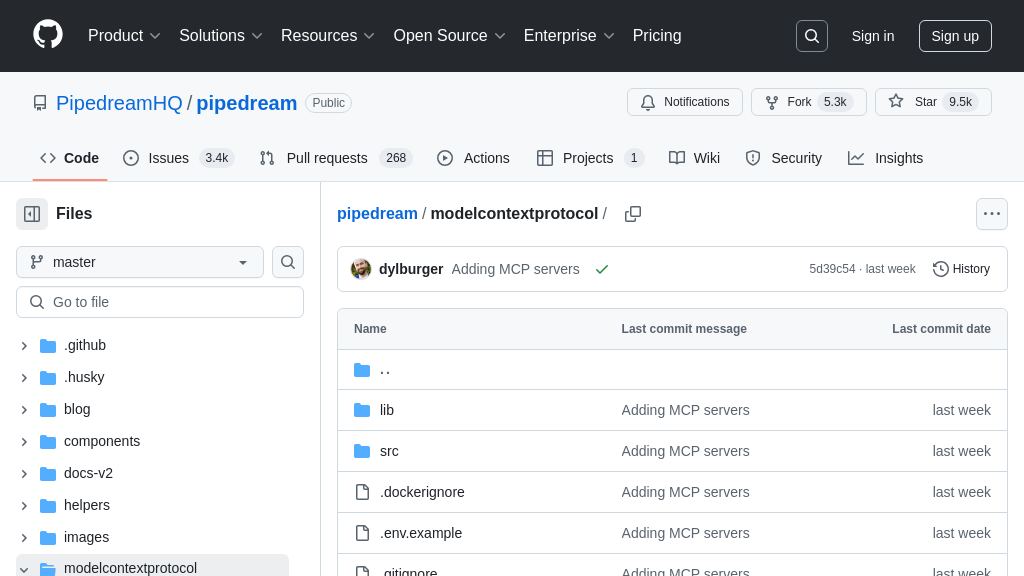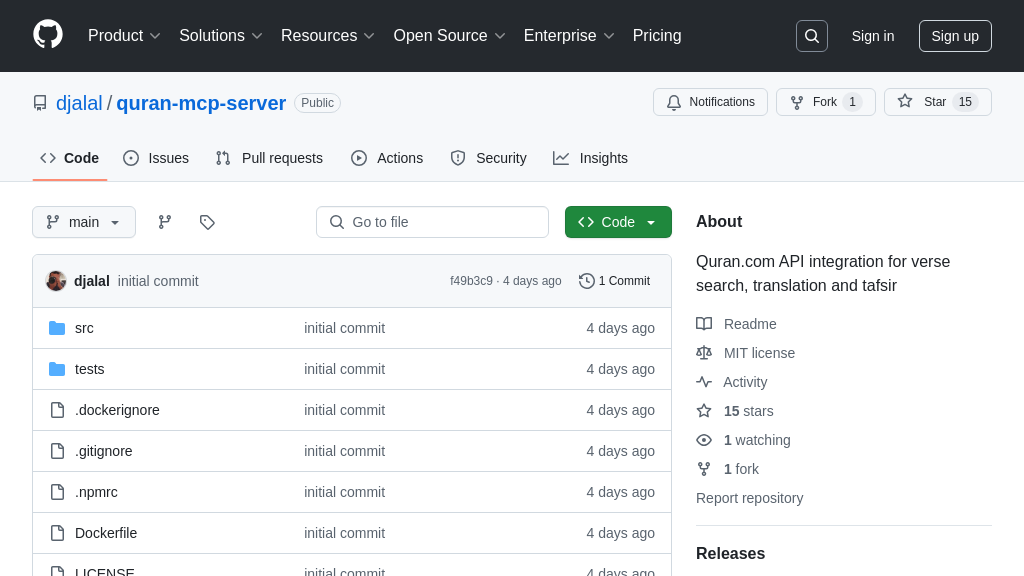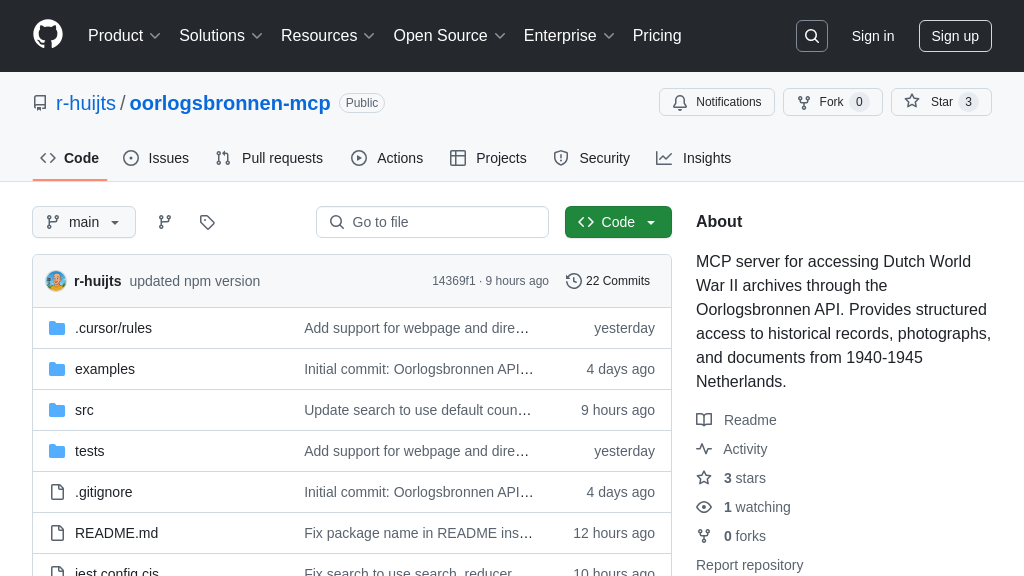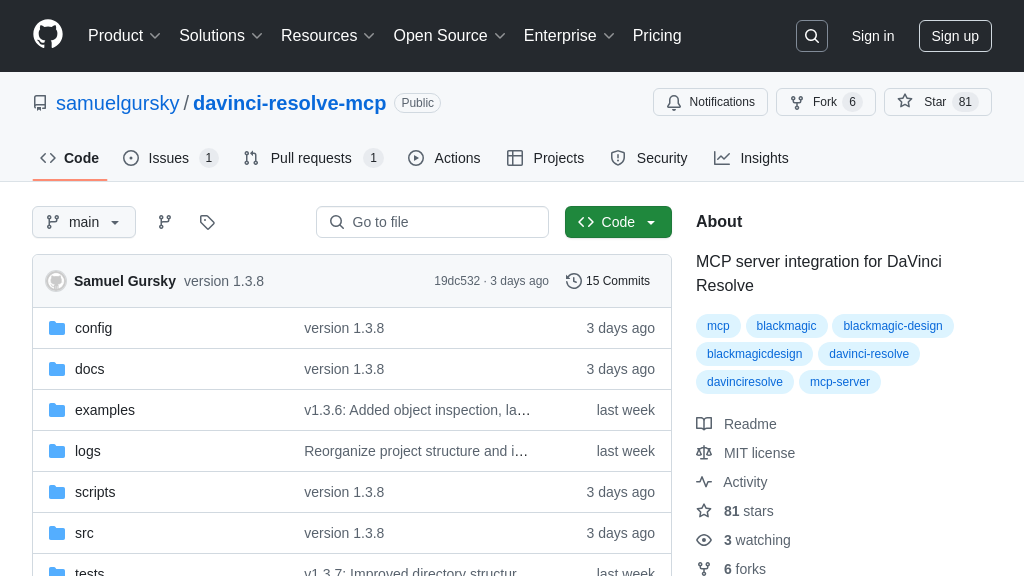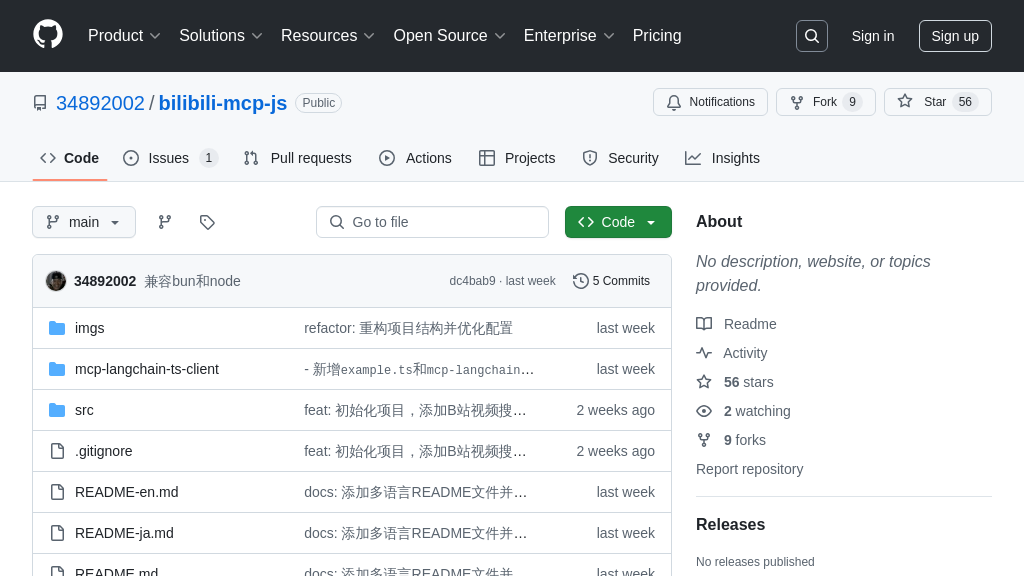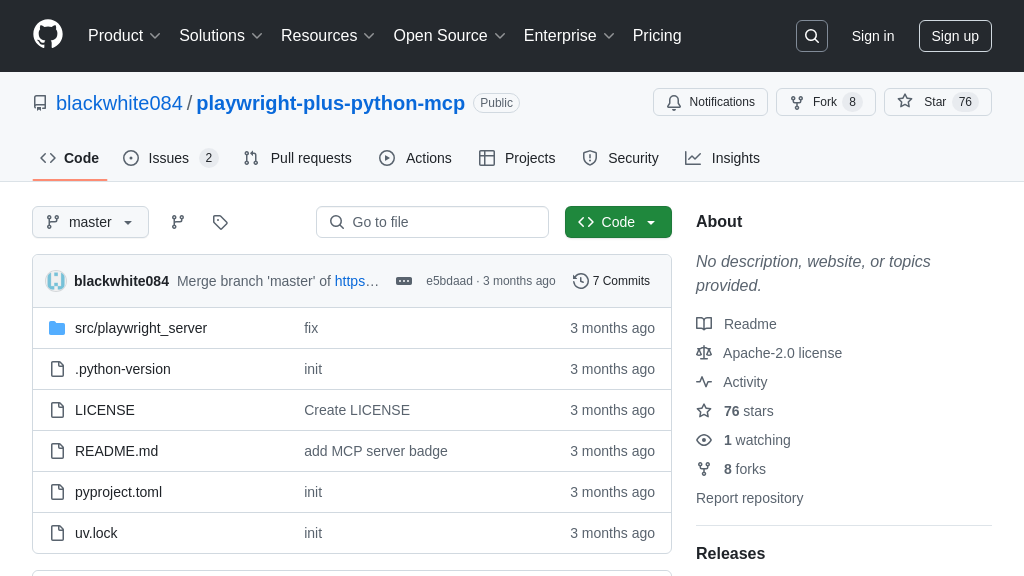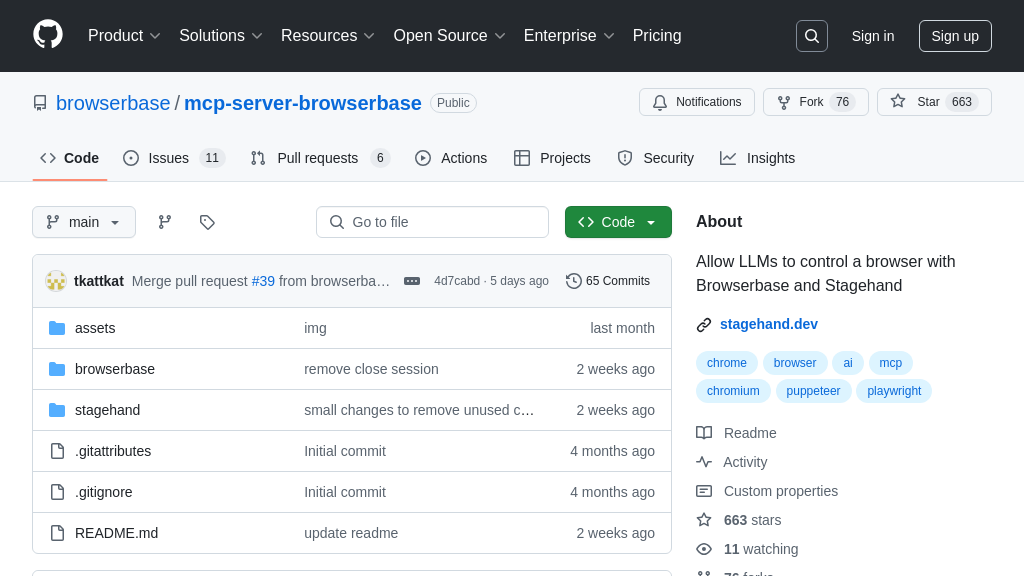simple-mcp
Simple MCP: A TypeScript library for easy MCP server creation, enabling seamless AI model integration.
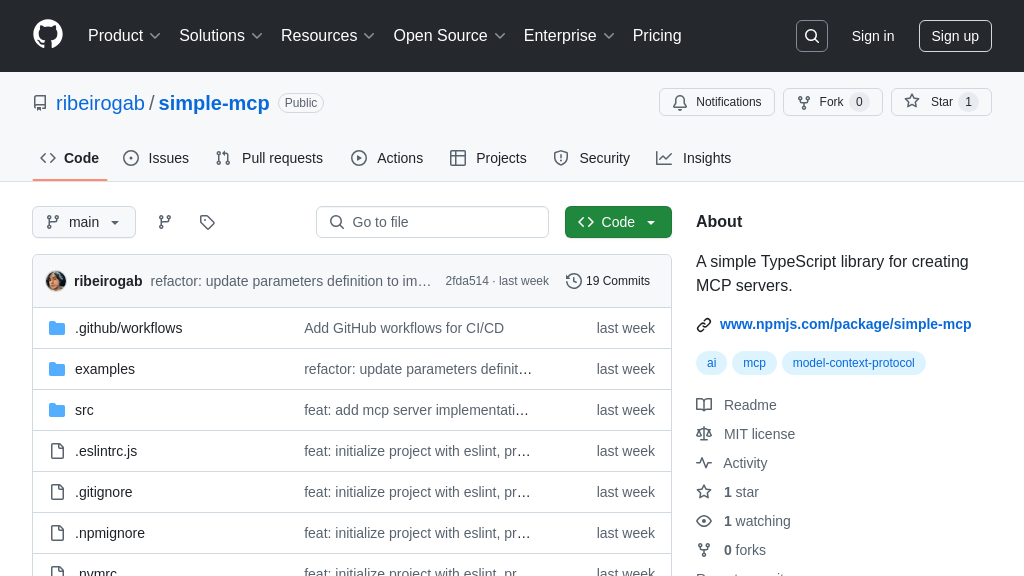
simple-mcp Solution Overview
Simple-mcp is a TypeScript library designed to streamline the creation of MCP servers. It empowers developers to build Model Context Protocol compatible servers with ease, leveraging a simple API and full TypeScript integration for type safety. This library simplifies the process of defining tools with parameter validation using Zod, ensuring seamless interaction between AI models and external resources.
Simple-mcp offers a class-based implementation for structuring MCP tools, promoting code reusability and maintainability. By handling the underlying protocol complexities, it allows developers to focus on the core logic of their AI-powered applications. Integrating simple-mcp into your workflow unlocks the ability to create robust and reliable MCP servers with minimal code, accelerating the development of AI solutions. It supports standard input/output transport, facilitating easy deployment and integration.
simple-mcp Key Capabilities
Simplified MCP Server Creation
Simple-mcp streamlines the process of building MCP servers using TypeScript. It offers a straightforward API that minimizes the code required to create a functional server, reducing the complexity typically associated with implementing the Model Context Protocol. This allows developers to quickly integrate AI models with external resources and services. The library handles the underlying protocol complexities, enabling developers to focus on defining the tools and their functionalities rather than the intricacies of the MCP standard. This ease of use accelerates development cycles and lowers the barrier to entry for developers looking to leverage MCP in their AI applications.
For example, a developer can create a server with a tool that fetches weather data with just a few lines of code, abstracting away the complexities of handling requests and responses according to the MCP specification. This is particularly useful in scenarios where AI models need real-time information to provide accurate and context-aware outputs.
Built-in Parameter Validation
Simple-mcp incorporates Zod for robust parameter validation, ensuring that the data received by the AI model is in the expected format and meets predefined criteria. This validation layer prevents errors and enhances the reliability of the AI model's interactions with external systems. By defining schemas for the input parameters of each tool, developers can automatically validate incoming requests, ensuring data integrity and preventing unexpected behavior. This feature is crucial for maintaining the stability and security of the MCP ecosystem, as it mitigates the risk of malicious or malformed data compromising the AI model's performance.
Consider a tool that requires a numerical input within a specific range. Zod can be used to define this constraint, and any request with an out-of-range value will be automatically rejected, preventing the AI model from processing invalid data. This proactive validation mechanism is essential for building robust and trustworthy AI applications.
Class-Based Tool Implementation
Simple-mcp supports a class-based approach to defining MCP tools, promoting code reusability and maintainability. By encapsulating the logic and parameters of a tool within a class, developers can create modular and well-organized codebases. This approach simplifies the management of complex tools and facilitates the creation of reusable components that can be easily integrated into different MCP servers. The class-based implementation also enhances type safety and allows for better code organization, making it easier to understand and maintain the MCP server over time.
For instance, a developer could create a TranslationTool class that handles the translation of text between different languages. This class would encapsulate the necessary parameters (e.g., source language, target language, text to translate) and the logic for interacting with a translation API. This class can then be easily reused in different MCP servers that require translation capabilities, promoting code reuse and reducing development time.
MCP Protocol Compliance
Simple-mcp fully implements the Model Context Protocol, ensuring seamless interoperability with other MCP-compliant components. This compliance guarantees that the server can communicate effectively with various AI models, clients, and resources within the MCP ecosystem. By adhering to the MCP standard, Simple-mcp enables developers to build AI applications that can easily integrate with a wide range of external services and data sources. This interoperability is crucial for fostering a vibrant and interconnected AI ecosystem, where different components can work together seamlessly to deliver innovative solutions.
For example, a Simple-mcp server can be used to connect an AI model to a database of customer information, allowing the model to personalize its responses based on the customer's profile. The MCP compliance ensures that the data is exchanged in a standardized format, enabling the AI model to easily understand and process the information.
